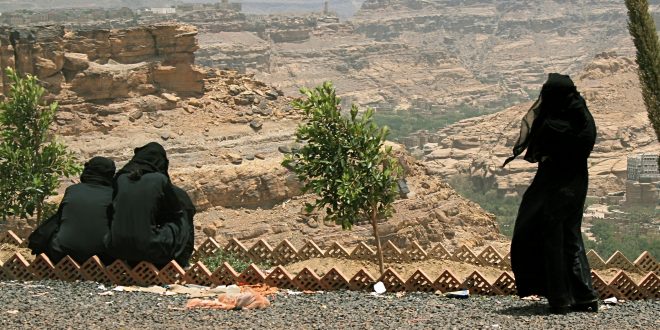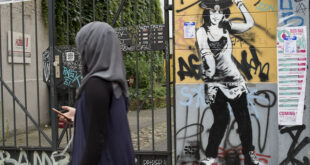What was it like to be a woman over there?” Hannah Allam recounts being frequently asked of her time reporting from Iraq in the first essay of Our Women on the Ground. The collection of essays by female journalists, edited by Lebanese-British journalist Zahra Hankir, provides an account of “life in the field” across the region. The reply Allam intends to give is “Well, I’ve never been there as a man, so I’m not sure I can compare.” But it often escapes her, she says, as the faces of the women she encountered come into focus. As one reads on, digesting one powerful story after another, this mental detour is unsurprising.
In recent years, there have been many initiatives and individuals working to remove stigmatization and stereotype around victimization and domination of Arab women. At times, the conversations that emerge can seem ridiculous or end up simply perpetuating the very narratives they seek to dispel. These stereotypes are often combated most effectively by those not explicitly trying to counter them: Just real stories about real people. This is what Our Women on the Ground offers.
At times harrowing and tragic, with dashes of that special brand of Arab dark comedy, what ultimately emerges is a spectrum of stories exhibiting pain, strength, resilience and a kind of collective trauma that is omnipresent in the region but rarely spoken of.
The book is complicated. The authors’ backgrounds and stories are as diverse as the nations that make up the Arab region. Different passages will stand out for each reader, depending on their views, experiences, and relationships to the places covered. Some of the essays are riddled with tragedy and raw sadness, like the startlingly honest account of loss and self-preservation by journalist Nada Bakri, wife of the late New York Times foreign correspondent Anthony Shadid. Others tell disturbing stories of violence and danger as it unfolded around them.
The essay “Spin” by Natacha Yazbeck is arguably the most candid and darkly humorous account of the ethical dilemmas faced by journalists with regional connections covering difficult beats. To say her description of guilt and internal struggle is brave feels like an understatement. It comes to a head in the final pages, where she writes:
… But I do. I need forgiveness. Every day. Because complicit does not even begin to describe it. To write from, and in, that same pipeline that disfigured my people, my history, my land, my family, to write in the very language and for the very people who did it, which is also your language and who are also your people, and to do it so that you are liked, so that you are tagged, to be popular because your brand is your currency. To sell out every minute of every day, and to be thanked for your part in our very disfiguration. To be willingly complicit in this in that fact that my tax dollars fund the wheels on the planes bombing the babies of my people.
Frankly, this stunning self-awareness and (overly) harsh self-critique is balanced by other essays tending toward the opposite. Still, however you may feel about the authors at the end of every chapter, their characters and experiences are laid bare. As writers, journalists, and editors working in the region we all make choices; and one cannot deny the fortitude needed to candidly share those choices with an anonymous audience.
Some chapters of the book also offer rare insight into areas of the Arab world where English-language coverage is spotty at best and usually of one note. Yemeni photojournalist Amira Al-Sharif’s essay was a refreshing break from the horrific but inconsistent coverage we often see from the war-torn country. She has held strong to her belief that her people deserve a more complex and nuanced narrative, and has done her part using her camera to tell stories of the strength and resilience of Yemeni women that she has compiled into a project called “Yemeni Women with Fighting Spirits.”
But even with how candid much of the content is, some choices are questionable. In one case, the publisher opts for direct translation of all Arabic until one protest chant: “Allah, souria, hurriye, wa bas” choosing instead to indicate it was “calling for freedom in the country.” This stood out to me in a volume that is, by its very nature, in opposition to so many stereotypes of women, society, and life in the Arab world. Why choose not to include the translation of God, Syria, and freedom for an English-speaking audience?
Whatever the reason, it is a disservice both to the author and the audience as it reflects as an oft-ignored breed of self-censorship. Not the self-censorship for self-preservation practiced by so many journalists in the region, but the kind that makes us apologetically “from the region.” This is a choice to not emphasize—maybe even “sanitize”—the cultural importance of aspects of religion because we assume our audience will simply not understand, or fear they will use it as fodder for their xenophobia. One would hope that within content where truth and reality are presented in such an unapologetic manner, cultural nuance like this could be included. But perhaps there was not space, and perhaps I am splitting hairs.
Finally, the volume disproportionately represents journalists working for major western publications or networks, with only a handful representing local outlets from the region. Editor Zahra Hankir addresses this issue and the challenge of choosing and capping the number of contributors in her introduction, but the imbalance is palpable as one works through the book. This ultimately detracts from its overall strength, but perhaps leaves space for another volume focusing only on the stories of lesser known local sahafiyat.
This review was also published on Africa is a Country.
 Arab Media & Society The Arab Media Hub
Arab Media & Society The Arab Media Hub





